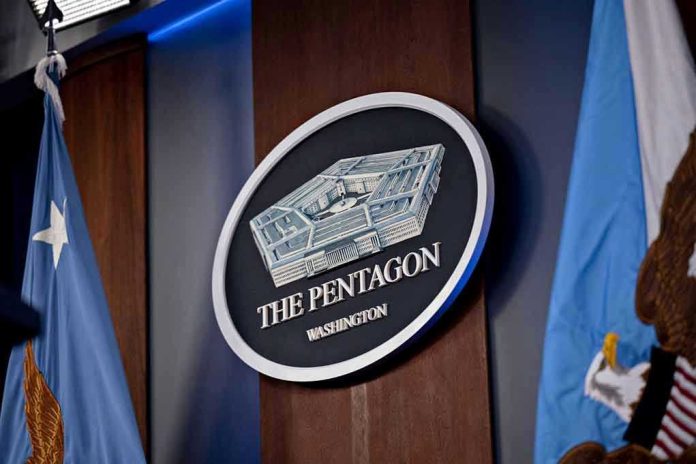
For nearly a decade, foreign engineers in China quietly accessed U.S. Pentagon cloud systems—an oversight now fueling urgent questions about national security and government accountability.
Story Snapshot
- Microsoft employed China-based engineers for U.S. Department of Defense (DoD) cloud systems, supervised remotely by Americans lacking technical expertise.
- The arrangement operated from 2015–2025 without public scrutiny, exposing critical vulnerabilities in Pentagon data security.
- After public exposure, the Pentagon halted the practice, initiated a comprehensive audit, and issued a formal reprimand to Microsoft.
- The incident underscores persistent risks from outsourcing and weak oversight, raising alarms about foreign influence on sensitive U.S. infrastructure.
Pentagon Allowed China-Based Engineers to Maintain Sensitive Systems
Between 2015 and 2025, Microsoft ran a “digital escort” system that permitted engineers based in China to work on sensitive U.S. Department of Defense cloud systems. These engineers were supposed to be closely monitored by U.S. citizens holding security clearances. However, the American supervisors often lacked the technical skills needed to effectively oversee the work, allowing potential vulnerabilities to go undetected. This model operated under the radar for years, with both the Pentagon and Microsoft failing to notify the public or Congress until investigative journalists brought the issue to light.
Microsoft’s use of China-based personnel on Pentagon contracts stood in direct contrast to federal security guidelines that require only cleared U.S. personnel to have access to sensitive defense-related data. The company’s disclosures to the DoD omitted key details about the involvement of foreign staff. Experts have described the digital escort model as fundamentally flawed, especially when the “escorts” cannot verify or understand the engineers’ technical work. The Pentagon’s reliance on commercial contractors for cloud systems, combined with these weak safeguards, opened the door for potential adversaries to access sensitive national security information.
National Security Risks and Oversight Failures Come to Light
The arrangement came under fierce scrutiny after a comprehensive exposé revealed the practice in July 2025. The report triggered immediate action from the newly appointed Secretary of Defense, Pete Hegseth, who issued a formal reprimand to Microsoft and ordered a third-party audit of the company’s handling of DoD data. All China-based engineers were removed from Pentagon contracts, and the department launched a full review of contractor security practices. Congressional leaders, including Senator Tom Cotton, demanded greater transparency and accountability, arguing that such lapses could jeopardize U.S. military operations and give adversaries an intelligence advantage.
Security experts have consistently warned that even unclassified but sensitive data can be exploited by hostile actors, especially when technical oversight is lacking. This incident has reignited concerns about outsourcing critical government functions to private companies, particularly when those companies rely on overseas staff from countries with adversarial interests. The failure to enforce robust verification and reporting standards has prompted calls for stricter oversight, revised contracting procedures, and enhanced supply chain security throughout the federal government.
Immediate Policy Shifts and Long-Term Implications
In response to the revelations, Microsoft swiftly announced it would no longer employ China-based engineers on any DoD contracts. The Pentagon’s third-party audit will review all code contributions from foreign personnel and assess whether vulnerabilities were introduced into critical systems. This ongoing investigation has already prompted other federal contractors to examine their own staffing and oversight practices, anticipating similar audits and regulatory changes. The technology sector faces new compliance costs as stricter rules are put in place to prevent foreign nationals from accessing sensitive infrastructure.
Obama and Biden Had Chinese Nationals Working on Defense Department's Data Storage Systems with Microsoft's Help WELL AFTER THE ISLAM INVASION OF EUROPE & THE ATTEMPTED INVASION OF AMERICA WHO ENDS UP BENEFITING FROM THE GLOBALISTS BUT CHINA? https://t.co/6A5IDGqQ0x
— Kim Guerino (@GuerinoKim) August 29, 2025
For many Americans and especially those who value constitutional protections and national sovereignty, this episode is a sobering reminder of the dangers posed by lax oversight and globalist outsourcing. It highlights the need for government vigilance and robust enforcement of security standards in all federal contracts. The episode also signals a shift toward onshoring sensitive IT work, stricter supply chain controls, and heightened scrutiny of foreign involvement in U.S. critical infrastructure. As the Pentagon’s audit proceeds, policymakers and the public alike await answers on whether national security was compromised and what reforms will be implemented to prevent similar failures in the future.
Sources:
Microsoft faces scrutiny as Pentagon launches probe into Chinese engineers’ involvement
Microsoft Used Engineers in China on U.S. Defense Department’s Cloud Systems
ProPublica: Microsoft Used China-Based Engineers on Pentagon Cloud; Pete Hegseth Comments
‘Digital Escorts’: Microsoft Allowed China-Based Engineers to Maintain Pentagon Cloud Systems
Microsoft No Longer Allows China-Based Engineers to Aid Pentagon









